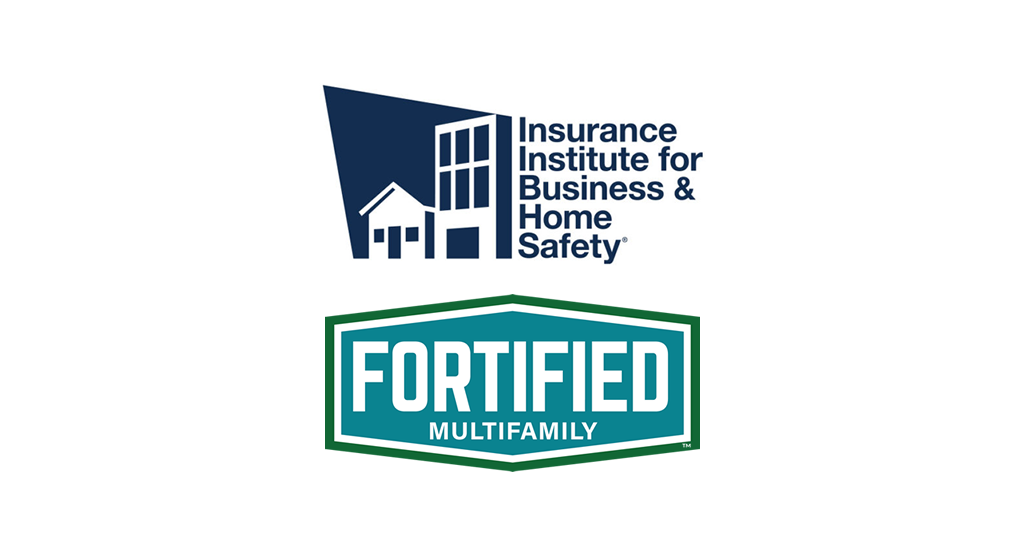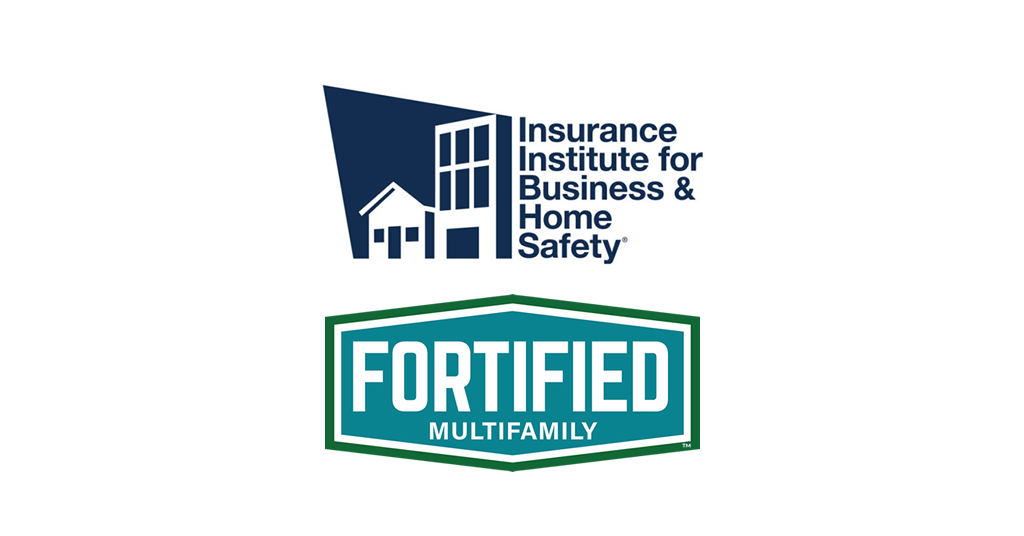FORTIFIED Program Expands to Include Multifamily Communities


Richburg, S.C., January 27, 2022 – The Insurance Institute for Business & Home Safety (IBHS) has expanded FORTIFIED, its voluntary, beyond-code, resilient construction program, with a designation designed to fill a void in climate resilience for the U.S. housing market. The new FORTIFIED Multifamily™ standard lays the path for multifamily developers, owners and property managers to offer residents homes built or retrofitted to perform better in severe weather, including powerful high winds and heavy rain from thunderstorms, derechos, hurricanes and even tornadoes.
“We can’t reach critical mass in our quest for a more resilient nation without addressing the needs of the 164 million Americans who live in multifamily housing,” says Roy Wright, president and CEO of IBHS. “Everyone, regardless of where they live or their income, deserves a strong home designed and built to withstand the weather it will face. We’ve sharpened our focus to help ensure more Americans can benefit from IBHS research and better prepare our homes to reduce the damage and destruction caused each year by severe weather.”
In addition to expanding the FORTIFIED program to include a standard for strengthening multifamily communities, IBHS has committed to take the following steps to help make the availability of resilient homes more accessible throughout the country.
- IBHS will offer its FORTIFIED Home™ certification courses through FORTIFIED Wise University at no cost to nonprofit organizations building for families with low to moderate incomes. By educating nonprofit builders about the impact key upgrades can have on a home’s ability to withstand severe weather, IBHS seeks to empower those organizations to make homes more resilient for the families who can least afford to be displaced by disasters.
- IBHS will also eliminate the small administrative fee it collects to review and process FORTIFIED designations for single family homes built by a nonprofit organization for families with low to moderate incomes. Reducing the cost-gap between standard construction and the incremental investment to build to FORTIFIED will help make it easier for nonprofit organizations to implement the program.
- IBHS will advance research-based affordable resilience solutions, including guidance on ways to make manufactured and modular homes more resilient, through public policy initiatives. Not all homes in America are stick-built on-site. By researching and examining ways to help these products better withstand severe weather, IBHS will make resilience more accessible to millions of Americans, including the more than 20 million who live in manufactured housing.
- IBHS will continue its commitment to collaborate with partner organizations dedicated to finding solutions for making all housing more resilient, including creating collaborative opportunities between its member insurance companies, federal, state, local, and Tribal entities, nonprofits and others who build or have a shared interest in resilient homes and strengthened communities. These partnerships often result in pilot projects that introduce, incentivize, or fund resilient construction to new markets and act as a catalyst to promoting stronger construction throughout the area.
“Our organization has dedicated decades to conducting top-tier science to identify ways to minimize the damage severe weather can cause,” added Fred Malik, IBHS managing director for FORTIFIED Programs. “By expanding the FORTIFIED program to include multifamily properties and deepening our commitment to supporting nonprofits, we are helping to ensure more families have a place to return after the next storm, no matter where they live.”
Like FORTIFIED Home and FORTIFIED Commercial™, the newly launched FORTIFIED Multifamily program requires that builders and contractors adhere to strict construction standards developed by IBHS to minimize damage from severe weather. Additionally, key resiliency features must be verified and documented by an independent, third-party evaluator. Also similar to the other FORTIFIED programs, FORTIFIED Multifamily will offer three designation levels so developers, owners and property managers can choose the level of protection most appropriate for new construction, renovation or re-roofing, and that also best meets budget considerations and resiliency goals. Each level will provide beyond-code protection proven to withstand winds of at least 130 mph. “We’ve seen in areas with high concentrations of single-family FORTIFIED homes that resiliency starts as a novel option, but it is fast reaching a tipping point. As we build the housing stock of our future we see an increased desire – even demand – for climate ready housing,” added Wright, “By adding a Multifamily standard and exploring pathways to resilience for additional types of housing, we’re reaching more climate-vulnerable communities, in urban, suburban and rural areas, with actionable ways to lessen the impact of severe weather events.”
Recent Posts
NOAA Weather
Tampa, FL
Last Updated on Jun 5 2024, 6:53 am EDT
Weather by NOAA
Current Conditions: Fair
Temp: 77°F
Wind: SE at 5mph
Humidity: 88%
Dewpoint: 73.0°F
 National Hurricane Center
National Hurricane Center
- The Atlantic hurricane season runs from June 1st through November 30th. April 20, 2025The Atlantic hurricane season runs from June 1st through November 30th.